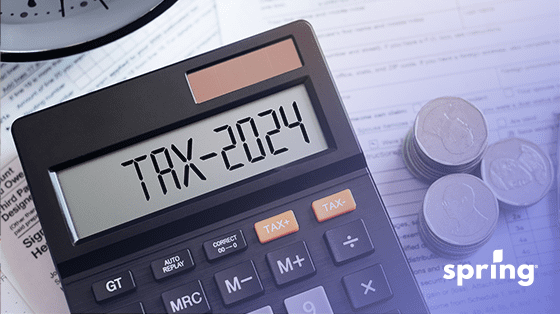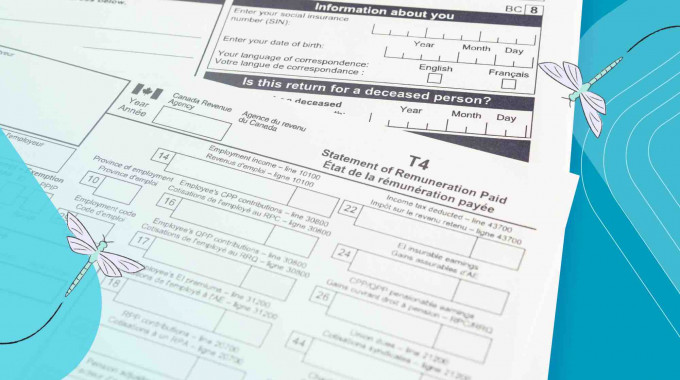A List of Ways to Save Money in Canada
Trying to mitigate how much money you spend every month is a difficult thing to do. Everything costs money, but don’t worry, even though you need to spend the money there are some of the best ways that you can cut down the cost of everyday items and save money.
- Create a budget – While this can be overwhelming, many different free budgeting apps help you mitigate your spending and break down what you are spending every month. These apps usually follow the 50-20-30 rule. Many of these apps also offer constant updates on your credit report as well as the ability to show free credit score monitoring.
- Pack a lunch – One of the most lucrative ways to save money is to pack a lunch. Making your food at home could save anywhere from $2000-$3000 per year.
- Make coffee at home- This is another simple change you could make to save some money. The average person spends over $1000 per year at coffee shops. That $5-$6 per day adds up fast.
- Bundle Insurance- Some insurance companies offer discounts to those who purchase all of their insurances at one office.
- Carpool – Carpooling also saves a lot of money on transportation costs. Believe it or not, biking and walking can save anywhere from hundreds to thousands per year.
- Shop at thrift stores – A lot of the time, the things you are looking for can be found at the thrift store. They have plenty of gently used and new things for half the cost.
- But a used vehicle- When you purchase a new vehicle, it loses a good portion of its value when driven off the lot. You can find plenty of used vehicles in great condition.
- Go to garage sales – Many people throw garage sales when they are moving and get rid of great things for a low cost. This can be helpful when it comes to saving money,
- Cancel unused subscriptions – It’s too easy to sign up for a subscription service when the first month is free. The hard part is remembering to cancel them. Checking your bank statement often or entering these into your calendar can be super helpful.
- Learn to negotiate – With a lot of things, there is room for negotiation. Learning this skill can help you save a lot of money.
- Learn how to DIY – Do-it-yourself projects are quite easy, depending on the project you are doing. Refinishing used furniture, creating décor, or even altering clothes are just a few different examples that can save you money.
- Create a meatless meal in your weekly schedule. Meat is one of the most expensive groceries and cutting it out once a week can save money on your overall grocery budget.
- Keep your tires inflated. This simple tip can help you get better fuel mileage and save money on fuel. It also reduces the wear on your tires making them last longer.
- Buy frozen foods. While fresh may seem like the way to go, frozen fruit and veggies are often cheaper, and a good portion of the time fresh food goes to waste. This can last a longer period of time.
- Ask for a raincheck on sale items. A lot of the time when grocery stores sell out of on-sale items, they will write you a raincheck for that item and you can purchase it at the sale price when it is back in stock.
- Buy generic products. While they aren’t always better, many times you can get the same quality with just different packaging at a better price.
- Turn off electronics when you leave the house. This small savings on your power bill can add up over time.
- Count to 10 before making a purchase. This ten-second rule allows you to think about the money you are about to spend and if it is worth it.
- Pay attention to your tax situation to get a maximum tax refund every year.
- DIY your gifts. Instead of spending money on gifts, consider making them from scratch. You can find plenty of ideas on online sites like Pinterest.
- Shop after the holidays. Often seasonal items go on clearance after the holiday, and you can purchase them for much cheaper. This leaves you prepared for the next year.
How to Save Money From Your Salary
If you have a fixed salary income it can be difficult to break down your pay to decide how much you should be putting into a separate savings account. The best way to do this is to break up your paycheck. See how much you pay out for bills every month and what is the extra income you spend.
From there you can cut out anything that you deem unnecessary and even negotiate any current bills to make them lower. While it is generally recommended to save at least 10% of your salary, it is up to you to decide how much you can reasonably afford to put away.
Once you have figured out your budget, then you can decide how much money you are going to put into your savings accounts. The easiest way to make sure that you are continuously saving this amount every month is to have it set up as an automatic deposit with your bank or financial institution.
They can set it up, so this amount comes out every month or payday and gets deposited into the savings account. Not having to do this manually stops you from deciding to spend that money elsewhere.

How to Save Money as a Student in Canada
The hardest time to save money is often when you are a student. The best way to save money is to check with your campus for any discounts for students and look online for companies that offer student discounts. There are many of them. A few other things you can also do are:
- Sell your textbooks
- Buy used textbooks
- Apply for grants and scholarships
- Plan your meals
- Use coupons
Living on a limited income is difficult at any stage of life but, as a student, you not only have to pay your tuition, but you also must pay to live. Using some of these money-saving ideas can really help you to limit your spending and borrow less money for your tuition. Not having to pay a ton of interest on student loans helps to save you money as well.
How to Save Money Fast in Canada
If you are looking to save some money, but don’t have a lot of time to wait there are a few things that you can do to fast-track the process. Whether you are trying to save more money to help with your personal finances, to pay property taxes, pay for extra living expenses, or just to take control of your financial future, even the smallest changes can help.
No matter how much money you make, this includes those who are low income, the tips for making money fast are the same.
- Set up automatic savings – Your bank or credit union can easily set it up so that you can automatically transfer funds out of your chequing account into a separate bank account, ideally a high-interest savings account. This is great especially if you get paid via direct deposit. This way you never even have the chance to spend the money before it is put away.
- Cancel unnecessary subscription services – A lot of the time the subscription services we pay for aren’t necessary and we are able to go without them if we need the money for other things.
- Switch banks – Some banks charge high account fees while others don’t. It’s worth it to take a look and see if you should be paying those charges or if you would be better off going with a different financial institution.
- Sign up for loyalty programs – Loyalty programs can often earn you free money back or free items which can go a long way when trying to save money.
- Stop paying for convenience – Things like pre-cooked chicken or any other thing that takes the work out of it for you often cost more. By doing these few steps yourself you can often save yourself quite a bit of money.
- Earn cash back– Credit cards and even loyalty rewards can earn you money to go towards bills, gift cards, gas, and even groceries.
- Sell unwanted items– Selling things you no longer need at garage sales or even online can help you come up with the money that you need quickly.
- Reevaluate housing costs – Whether you rent or have a mortgage, sometimes you can renegotiate your payments, even before it’s time to remortgage or renew your lease.
- Eliminate one spending habit per day – Cutting out things like buying coffee or lunch can add up quickly, and before you know it you could have an extra couple hundred dollars.
When we start really evaluating our money, we realize that we spend a lot of it on unnecessary items. Some small, simple changes can help your money grow faster than you think. Whether you need $1000 fast or more, these tips will help you get there.
Saving Money for a House in Canada
If you’re trying to save money for a down payment on a house, it’s not really any different than saving for any other large purchase. Following the above tips on how to save money is helpful, it is also important to pay down your credit cards at the same time. This reduces your overall debt-to-income ratio and allows you to increase your credit score at the same time.
It is also helpful to save money for a down payment by investing it or putting it in a TFSA. Since you don’t intend to spend this money anyways, it is beneficial to lock it away and earn interest on it.
One way to do this is to put your money into an RRSP or mutual fund, however, you can also take money out of these accounts if you are a first-time homebuyer. Once you have taken the money out to buy a home, you have 15 years to pay the money back without being penalized.
Save Money on Groceries in Canada
On top of all the great ways out there, a common way to save money is on groceries. How do you do this in Canada? Well, there are a few different ways to do this.
- Collect coupons: While couponing is quite common in the United States, many people don’t realize that you can coupon in Canada. There are plenty of websites dedicated to coupons, you can also request coupons from retailers or even combine coupons with loyalty points to get items for free. While you can’t stack coupons like you can in the U.S., you are able to get multiple copies of the coupons, they just have to be used in different transactions.
- Price match: Whether you prefer to have paper flyers or use online apps, check them before you go shopping. Most grocery stores will match the lower price of a competitor in order to gain your business. You can show this price difference at the till, and they will change it for you.
- Create a list: Having a grocery list to stick to helps you to avoid purchasing unnecessary items.
- Don’t shop hungry: This can also help you to avoid purchasing unnecessary items.
- Use cash: A great way to limit the amount you spend on groceries is to withdraw money every payday and limit your budget to that. Seeing money in your hands makes it harder to go over budget.
- Hunt for the best deal: Make sure you do your homework before going shopping, instead of price matching you may just notice that a certain store is just cheaper overall.
- Buy local: Shopping at farmers’ markets, local stores and local markets often gets you an abundance of things in season for cheaper.
- Buy in bulk: While it may seem counter-productive, buying the things you need in bulk while they are on sale does save you money over time and prevents you from making small grocery store trips which causes you to spend more.
The average person spends around $217 per month per person on food. Using some of these tips can help to bring that average cost down without compromising the quality that you look for.
Ways to Save Money on a Tight Budget in Canada
No matter how much money you are working with, the best course of action is to look at your current expenses and see where you can cut the costs. You can use the suggestions above when it comes to cutting costs on groceries and focusing on cheap or free forms of entertainment.
Finding different things to do besides going to restaurants and the movies, or any other activities that cost a lot of money, can make a difference. If you are going to go out, using things like Groupon or a 2 for 1 coupon can also make a big difference. Creative ways to save money
There are so many ways out the cost of everyday bills and products. It really can be as simple as switching to energy-efficient appliances to cut down the cost of your hydro bill or even switching to online shopping to obtain extra discounts. Here are a few other ways to creatively save money.
- Shop on discount days: Many stores offer one day a week that they offer discounts on certain items or for certain age groups. These are the days to shop.
- Save per purchase: Every time you use your card have the amount rounded to the nearest dollar and added to a savings account. For example, make a purchase of 17.33, and .67 will be automatically transferred into your savings. This can add up fast and allows you to spend money and save money at the same time.
- Make sure things are unplugged: Making sure not to leave things plugged in can really help when it comes to your hydro bill.
- Cancel your cable: With so many streaming services available out there, you no longer have to pay for cable if you don’t want to. Most of these services are accessible on a smart TV, Roky, or Amazon Fire Stick. There are plenty of other devices that allow for streaming as well.
- Use reusable water bottles: Buying cases of water can add up so switching to a reusable bottle can make a big difference.
- Avoid store credit cards: While many of these cards offer discounts, they also have a bunch of hidden fees. These end up costing you more money than the discounts.
- Make one trip: If you have errands to run, especially if you live a little out of town, try to do everything in one trip. This saves money on gas and stops you from buying unnecessary items.
- Meal prep: By prepping your ingredients for the meals throughout the week you are less tempted to order takeout.
- Use reusable grocery bags: These are a one-time investment, but you don’t have to pay for plastic bags every time you go shopping.
- Stop using cling wrap: Things like cling wrap and Ziploc bags are disposable so it is cheaper to purchase reusable containers.
- Start a garden: Growing your own vegetables can be fun and not very expensive. Gardens produce more than you think which allows you to freeze or can some of the abundance and save it for the rest of the year.
- Shop on days there is no tax: Some stores have days where you don’t pay tax on items you purchase.
How to Save Money as a Teenager in Canada
At any age saving money is confusing, but as teenagers, we are still learning money management. Some tips for saving money are to:
- Have at least 2 bank accounts, one for spending and one for saving.
- Lower bank card limits
- Keep your passwords and PIN a secret
- Avoid borrowing as much as possible
- Don’t bring extra money along to avoid overspending
- Track your spending
- Put your savings in high-interest savings accounts
These simple things can help you develop good money-saving habits and help to avoid excess debt as you get older.

What is the 50-30-20 Budget Rule?
The 50-30-20 rule is a method of budgeting that is quite popular and one of the easiest ways to save money. The premise of this rule is that you break your income into 3 different categories.
- 50% goes towards your need
- 30% towards your wants
- 20% towards financial goals
50% Towards Needs
This refers to the essentials like food, clothing, housing, and bill payments. While this seems like a large chunk, your bills tend to be the most expensive thing you pay for. This is true no matter how much money you make per month.
30% Toward Wants
This refers to anything like take-out, entertainment, vacations, and other things that are extra. It is important to keep in mind you can lower this percentage and use more of it to pay off your debt or to save more money. The sooner you get rid of high-interest debt, the more money you have to go towards other parts of your life.
20% Towards Goals
Whether you are creating an emergency fund, saving for retirement, paying off debt, or just saving in general, this portion of your income should only be used once your bills have been paid.
What is the 30-Day Rule?
Many people ask how they can avoid going broke. One of the first ways to do this is to use the 30-day rule. This refers to not making any nonessential purchases within a 30-day period. This gives you 30 days to decide if that purchase is necessary. If, after 30 days, you no longer want it, it probably wasn’t very necessary, to begin with.
The reason this rule works is that often nonessential purchases are done on impulse. Taking the time to consider the purchase takes all the emotion out of it and allows you to think logically. If the purchase is still necessary after this time, then the item is needed, if not, you are able to avoid some impulse spending which helps you to save your money.
Once you have decided that the purchase is not worth it, you could leave the money in your regular account, or you could take the amount of money you would have spent and put it in your savings account. While it is not necessary, this does help you build your savings account and can help you make your savings goals much faster.
Why is Saving Money So Hard?
There are a few different reasons why saving money is so difficult.
- The first is often that you aren’t keeping track of your expenses. This allows your spending to get out of hand and is often the reason why unnecessary debt occurs.
- Having a lot of debt is another reason it can be difficult to save money. High-interest debt payments eat into your monthly income so it is important to pay them off as fast as you can.
- Living beyond your means could also be a reason. This means you are spending more than you are bringing in leaving nothing left to save and incurring more debt.
- Impulse shopping is also a big reason for lack of savings which is why the 30-day rule helps so much.
- You aren’t putting money away before you spend it. Putting money away before you even have to look at it avoids the temptation of spending.
Taking a few extra minutes to take a look at your finances can make a huge difference in your overall financial health.
Is it Possible to Save Money Daily?
In short, it is possible to save money daily. Before you go to make any purchases, think for a second and see if it is necessary. Small daily changes like getting up a few minutes early to make a coffee instead of purchasing can save you a few hundred dollars per month. Or even pack a lunch, make a grocery list, bring a soda instead of purchasing one, and even pack a reusable water bottle are small things that can add up.
For example: On a normal workday you purchase a latte and a sandwich, however, you do have the ingredients to make these things at home. Taking a few minutes to prep them at home can save you somewhere around $10. If you work 20 days a month, this could save you $200 per month and $2,400 per year.
Can You Save 10k in 3 Months?
A good way to save this much money is the envelope method. For 100 days you add money every day to an envelope or a savings account and, after the 100 days, you should have 10,000 put away. Keep in mind you will need to cut your spending a lot to complete this.
The amount you put in each envelope depends on how much the envelope says. You will have 100 envelopes labeled with different amounts. Each day you grab an envelope and the number on it is how much you put away that day. When you create the amounts on the envelopes, just ensure the total of all the numbers is equal to $10,000.
This method may not be for everyone. This is a lot of money and not everyone has that much residual income to put away without missing their bills. The bills should be paid first before attempting this method.
Is Saving 1k in a Month Good?
This is actually a substantial amount of money to save in a month. If you continue saving money at this rate it could actually add up over time. For example, if you start saving $1000 per month at the age of 20, by the time you are 65 that is $540,000. If you invest this money into an investment account like a retirement savings plan, mutual fund, or a tax-free savings account, you can earn interest on it and have even more.
Is Saving 2k a Month Good?
Yes, this is even better than 1k. It’s not always doable though. It is important to save within your means. That being said, if you are able to save this much per month, it adds up quite quickly, especially if you invest it. If you were to start saving this much per month at the age of 20, by the time you are 65 you would have $1,080,000 before you incur interest.
What is the Best Way to Pay Off High-Interest Debt Faster?
If you are looking to save money but have quite a bit of high-interest debt, a good way to tackle it is by taking out a consolidation loan. Credit card debt and high credit card balances are difficult to pay off due to the high-interest rates. This is where debt consolidation comes in.
How this works is you take out a loan large enough to cover the debt that you would like to pay off. Once you are approved then you can pay off that debt and then you only have one monthly payment with one interest rate. Not only does this reduce your monthly expenses and avoid paying interest on a lot of different debt payments, but it allows you to achieve financial freedom faster and save money at the same time.
How can Spring Financial help?
Spring Financial specializes in loans for those who have any kind of credit score. We offer great rates and loan amounts ranging from $500 – $35,000. The great thing about our loans is that, once you are approved, you can receive the money in just a few hours through e-transfer. All of our loans are also open, this means that you can put money down on the principal loan amount at any time without penalty. This is an amazing feature when you are consolidating debt.
Since you are already saving money by downsizing into one monthly payment, you can pay off the loan faster and save money on interest. If you are interested in getting a consolidation loan, you can apply online or contact us at 1-888-781-8439.








